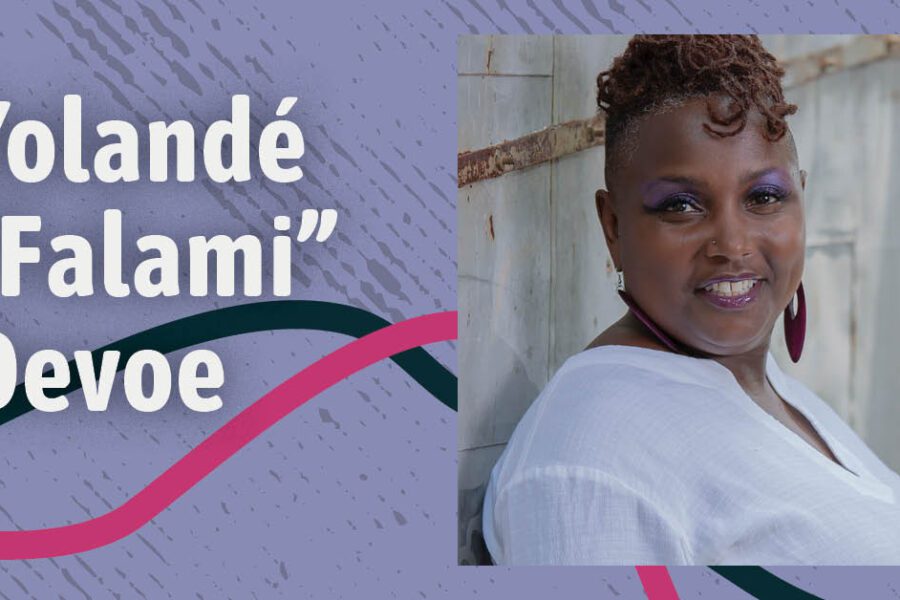Two new Individualized Master of Arts program courses provide a foundation in research and personalized learning, emphasizing the potential of new methods and tools within research.

Individualized Master of Arts faculty member Michael Maser, PhD, couldn’t help but notice that enrollment in graduate studies across North America was reported as declining, especially since the COVID-19 pandemic.
“People had serious issues and additional stresses coming out of the pandemic,” he said.“And not everyone can commit to three to seven years of graduate studies for various reasons.” Maser thought there must be another way to provide opportunities for people to do research that doesn’t involve a three to seven-year commitment.
Maser conceptualized a framework for this, and starting this coming term, he will teach two new courses: “Introduction to Research Fundamentals” and “The Advanced Research Project” within Antioch’s Individualized Master of Arts Program. Together, the courses comprise the Individualized Research Project.
The first course, “Introduction to Research Fundamentals,” is designed to provide students with a background in research fundamentals. Built into the course is a consideration of some issues researchers grapple with, including ethics, data collection, how to make an analysis, and how AI may influence their research. The goal is to develop a research proposal and a sense of direction with their project.
The second course, “The Advanced Research Project,” is to enliven that research and to put the ideas from the introduction course into practice. It complements the foundational skills course and enables students to immediately channel their skills into a research project of their design that will hopefully serve as a valuable outcome and potential stepping stone to future research.
Maser sees both these courses as helping students from different backgrounds develop a proposal, conceptualize a research plan, and then actualize it.
Students will critically review and combine relevant literature to guide their research. They will learn to identify gaps in existing knowledge and establish a foundation for their work. They must then create a research proposal that includes a coherent framework, research questions, and an appropriate research design. The focus will be on developing a feasible and ethical plan for investigation.
Maser explains that a project can be as personal as a memoir. “Maybe their research is genealogy, maybe it’s a professional interest they have carried throughout their careers, or maybe they’re retired and they’ve still got this interest area that they want to explore.” He can picture recent grads to retirees finding the two courses beneficial for whatever area of interest they want to pursue.
Maser himself often uses images to evoke metaphor. The poppy images in the header to this article, for instance, were photographed by Maser to evoke transformation and emergence, which are course themes.
Research as a Gateway to Genius
Understanding how to conduct critical research in a world saturated with misinformation is a crucial and cogent project with many individuals struggling to identify what constitutes valid research. Maser aims to bring clarity to this issue so that his students can feel more confident in the information they engage with. A significant part of these courses involves critically evaluating sources.
“Hopefully people will develop a critical perspective on their research,” Maser says, “including discerning that the unicorn they perceive in the clouds is not a real entity.” With these courses, Maser will provide some guidelines to help students distinguish fact from fiction.
The two courses comprising the Individualized Research Project provide students with the opportunity to research a topic of their genuine interest and achieve tangible results. It will be a space where students, with the help of the instructor, can nurture their ideas as they pursue their research endeavors.
Within the two courses, research projects can flex from the traditional text format. “That text-only way of doing research projects can be, in many cases, a limiting way to present information,” says Maser. In this project, students will be enfranchised to personalize their projects and discover the most appropriate way to convey their research project and engage a potential audience. Accordingly, a student research project could comprise an interpretive dance, music, or a web-based project, among endless possibilities.
Project completion may lead to future research or broader exploration. Ultimately, the direction of the research path is determined by the student. Maser says the experience can be likened to entering Aladdin’s cave—wherever you direct your focus, there is a treasure. “This is the essence of all research! It should elicit a sense of excitement about generating knowledge.”
For students about to enter the courses, Maser hopes they enter with a sense of excitement that the course is there to support their research interests. “With the new tools we have today, it’s a very exciting time to carry out research, shed the constraints of conventional research, and embrace the new forms of research and knowledge creation.”
There is a clear need to modernize and innovate traditional research methods to make them more inclusive and engaging. These courses emphasize the importance of personalized approaches, critical thinking, and creativity in research. As well, they enable individuals from diverse backgrounds to appreciate research as a means to explore the world and human ingenuity.
As Maser says, “That’s the ethos of the project, that research is a gateway to genius.”
Learn more about the Introduction to Research Fundamentals course, which begins on January 6, 2025, and The Advanced Research Project, which starts on March 3, 2025.






